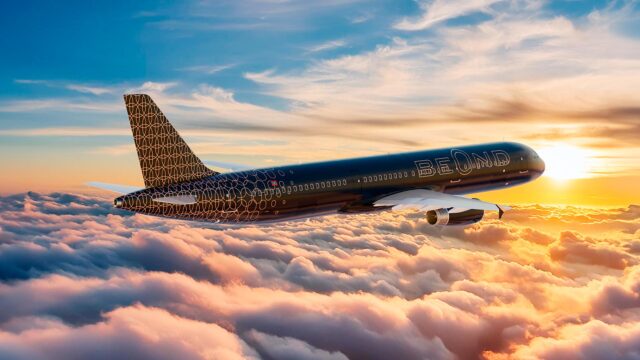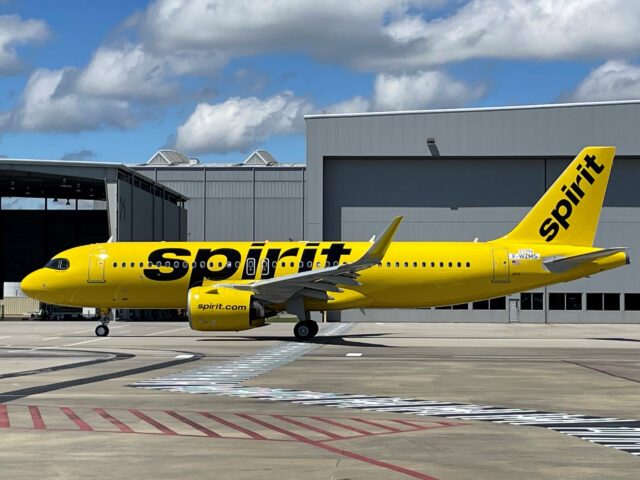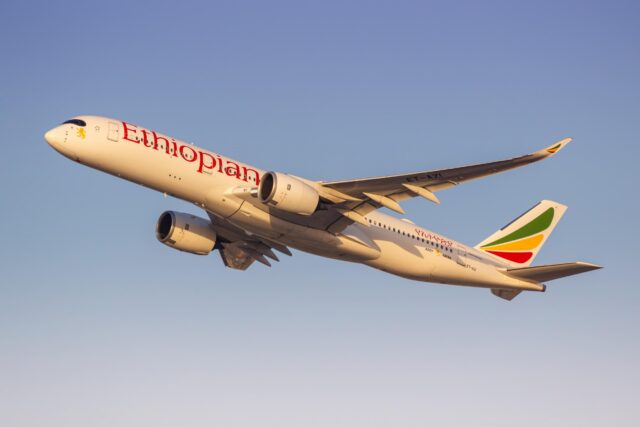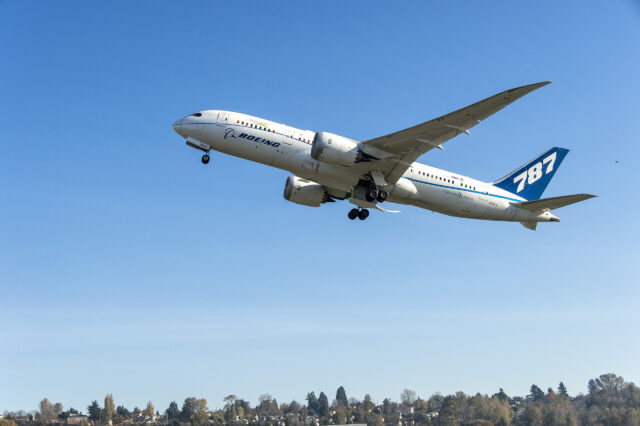European Commission strikes agreement with 21 airlines to address “greenwashing”

November 10, 2025

The European Commission has reached an agreement with 21 airlines to revise or remove environmental claims deemed misleading, following a coordinated investigation by the Consumer Protection Cooperation (CPC) Network.
The agreement concludes months of dialogue that began after the European Consumer Organisation (BEUC) filed a complaint in 2023, accusing major carriers of “greenwashing.”
EU secures agreement with airlines to end misleading environmental messaging
The airlines involved include Air France, KLM, Lufthansa, Ryanair, SAS, EasyJet, Norwegian, SWISS, TAP Air Portugal, Austrian Airlines, and Vueling. All have committed to eliminate or clarify claims suggesting that a specific flight could be made “carbon neutral” or “sustainable” through the purchase of offsets or sustainable aviation fuel (SAF).

“Consumers are the firepower of our economy. Time and time again, Europeans have shown their readiness to contribute to a more sustainable and resilient future,” said Michael McGrath, Commissioner for Democracy, Justice, the Rule of Law and Consumer Protection.
“It is now important that the industry match these efforts by ensuring transparency and honesty in environmental claims. Consumers deserve clear and accurate information about the true impact of air travel and the real efforts that can be made to increase sustainability.”
“This dialogue is an encouraging acknowledgement of the responsibility we share to provide consumers with truthful information and to work toward genuine improvements in reducing the environmental impact of aviation,” said Henna Virkkunen, Executive Vice-President for Tech Sovereignty, Security and Democracy. “I welcome the commitment made by the airlines to change their practices.
What airlines must change in their messaging
The Commission and national authorities said that many airline marketing practices violated the Unfair Commercial Practices Directive, which prohibits vague or unverifiable environmental promises. Under the new agreement, carriers will:
- Remove or reword claims implying individual flights can be carbon neutral through offset schemes or SAF purchases.
- Avoid using generic language like “green,” “eco-friendly,” or “sustainable travel” without providing scientific evidence.
- Clarify the actual share of SAF used and the lifecycle methodology behind emissions-reduction figures.
- Provide transparent assumptions in flight-emission calculators and ensure comparisons are scientifically supported.
The Commission emphasised that this was a compliance commitment, not a fine, but warned that enforcement could follow if the airlines fail to update their marketing.
The KLM “greenwashing” case: a win for environmental groups
In March 2024, the District Court of Amsterdam ruled that KLM Royal Dutch Airlines misled consumers with sustainability-related advertising, marking the first successful greenwashing lawsuit against an airline.
Environmental group Fossielvrij NL filed the case in 2022 with legal backing from ClientEarth, targeting KLM’s “Fly Responsibly” campaign. The plaintiffs argued that the airline’s claims about offsetting and sustainable aviation fuel created a false impression that passengers could fly “responsibly” without contributing to climate change.

The court found that 15 out of 19 marketing statements were misleading or insufficiently substantiated, including language implying KLM’s flights were sustainable or that purchasing offsets or SAF could neutralise emissions. In its ruling, the court said KLM had painted “an overly rosy picture” of sustainable aviation fuel and overstated the effectiveness of its measures, as reported by The Guardian.
Although the court did not require corrective advertising, it ordered the airline to ensure future claims are concrete, transparent, and evidence-based. KLM removed the contested materials.
Other airlines under fire for sustainability claims
Other airlines have also faced challenges from environmental groups and consumer protection agencies over their sustainability claims, not only in Europe but in the US as well. However, the US courts have generally favoured airlines.
Austrian Airlines: “carbon neutral to Venice”
In Austria, consumer group VKI filed a lawsuit against Austrian Airlines over a 2023 campaign claiming passengers could fly “carbon neutral to Venice” thanks to SAF. The court ruled that the claim was misleading because the airline used only a small fraction of SAF—nowhere near enough to offset the flight’s actual emissions.
Ryanair: “Europe’s lowest emissions airline”
The UK’s Advertising Standards Authority (ASA) banned Ryanair’s 2020 ads that described it as “Europe’s lowest emissions airline.” Regulators said the claim relied on outdated data and failed to account for other carriers.

Delta Air Lines: “world’s first carbon-neutral airline”
In the United States, Delta Air Lines is facing a proposed class-action lawsuit (Berrin v. Delta Air Lines Inc.) filed in the US District Court for the Central District of California. The suit alleges that Delta misled passengers by marketing itself as “the world’s first carbon-neutral airline.”
The plaintiff, represented by environmental counsel, argued that Delta’s carbon-neutral claim relied on offsets that were “manifestly and provably false.” The lawsuit claimed that Delta overstated the impact of its carbon offsets, many of which, it said, were overcredited or unverifiable. Delta denied wrongdoing and filed a motion to dismiss, arguing that the advertising was aspirational and that carbon offsets were certified by third-party verifiers.
United Airlines: SAF and carbon offsets claims
Also in the US, a class-action lawsuit (Zajac v. United Airlines Inc.) accused the airline of misleading consumers about its use of sustainable aviation fuel and carbon offsets. The Maryland court dismissed the case in 2024, ruling that it was pre-empted by the Airline Deregulation Act, which limits state-level consumer actions against airlines.
Europe requires proof of airline ‘green’ claims
The EU’s coordinated action on airlines follows broader regulatory reforms, not all of which have been successful. The Green Claims Directive, for example, was withdrawn in June of this year. It would have required companies to substantiate any environmental marketing statements with scientific evidence.

At the same time, regulatory requirements are providing firm numbers that airlines can cite in their messaging to specify their sustainability progress. The ReFuelEU Aviation Regulation, which took effect in 2024, requires European airlines to blend set proportions of sustainable aviation fuel by 2030. Airlines can publish their current blend compared to the target percentage required.
Airlines’ sustainability messaging agreement is only the beginning
Consumer groups say the new airline commitments are only the start.
“It is great news that authorities from across Europe acknowledge consumers have been fooled by airlines’ greenwashing. It is unacceptable that airlines have freely lured consumers into offsetting their flight’s emissions, sometimes at a high price. One can never be sure that the trees planted to compensate a flight’s high emissions will capture the carbon back into the ground – if they are planted at all,” said Monique Goyens, BEUC’s Director General.

“The fact that European consumer protection authorities are calling on airlines to get their act together shows there’s a wind of change. Greenwashing is no longer acceptable, and the fact that aviation is one of the most highly polluting sectors makes it even more intolerable. Today’s crackdown on greenwashing is encouraging at a time when consumers are expected to shift to more sustainable lifestyles.”
The combined effect of regulatory scrutiny, litigation, and public pressure will reshape how airlines talk about sustainability. Airlines now know that marketing slogans like “carbon-neutral flights” or “fly responsibly” can expose them to legal liability. The agreement does not mean airlines should stop promoting their sustainability initiatives, but rather that they should communicate measurable, verified progress rather than aspirational claims.
Featured Image: KLM
Find the latest aviation industry news right here.
















